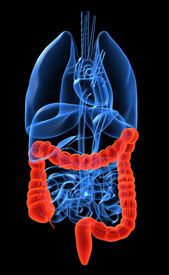Fecal Microbiota Transplantation for Recurrent C. Difficile Infection Studied in Community Hospital
Researchers report a cure rate of greater than 90 percent among patients with recurrent C. difficile infection treated with fecal microbiota transplantation at a community hospital.

The transplantation of fecal microbiota for the treatment of recurrent Clostridium difficile infection in a community hospital was found to be highly effective, according to results from a case review presented during a poster session at the 2013 American College of Gastroenterology annual meeting in San Diego, CA.
Diarrhea-causing Clostridium difficile is commonly spread in hospitals by health care workers who have touched a contaminated surface. Also called C. diff for short, the bacteria is difficult to cure with traditional antibiotics and can linger in the body, causing bloating, diarrhea, and inflammation of the colon. Clostridium difficile infection (CDI) has increased dramatically over the past decade in the number and severity of cases in the United States, according to the American College of Gastroenterology.
In recent years, therer has been growing evidence supporting the possible medical benefits of fecal microbiota transplantation (FMT), a treatment method that combats unwanted germs by restoring normal fecal flora through intestinal microbiota transplanted from the stool of a healthy donor.
In reviewing cases involving 13 patients who underwent FMT, researchers in this study wanted to determine the effectiveness of the procedure to cure patients with recurrent C. diff infection (RCDI) in a community hospital, since most of the reported data has been derived from academic centers, said Lakshmi Potakamuri, MD, who worked with colleagues on the review. They also looked for factors that predispose patients to have the procedure repeated.
“These patients were not able to be cured with antibiotics,” explained Potakamuri, who noted that FMT, while not FDA approved, is gaining popularity because it has lost some of the social stigma once associated with it. “Out of 13 patients in the study, 12 were cured,” he added.
The study, which was approved by an Institutional Review Board (IRB), looked at all cases of patients who had RCDI and were treated with fecal transplantation at the Mercy Medical Center in Baltimore, MD. The infection was defined as more than three liquid stools daily and positive C. diff toxin.
All transplantations were performed after standardized preparation of screened donor stool. Patient demographics, comorbid illnesses, antibiotic history, cure rate after FMT, complications, and follow-up were evaluated. Cure was defined as diarrhea resolution for at least 1 month and negative C. diff polymerase chain reaction (PCR) toxin status, if obtained.
Eleven women and two men underwent 24 transplantation procedures. Before the transplantation, they had been given four or more courses of antibiotics for RCDI. Duration of symptoms averaged about 10 months and the mean number of inpatient admissions for RCDI was 2.5.
The review revealed that the overall cure rate for RCDI from FMT was 92.3 percent. Six patients (46.1 percent) required one FMT, five patients (38.4 percent) required two FMTs, one patient (7.6 percent) required three FMTs, and one patient (7.6 percent) required five FMTs. Among seven patients who required more than one transplantation each, one person underwent the procedure for a second time because of persistent CDI. The remaining cases of repeat FMT were among six patients who were initially cured but received antibiotics for other indications and then developed CDI again.
One patient with severe COPD who received FMT died from pulmonary complications. The one failed transplantation was a patient who suffered cecal perforation during the procedure and was treated with a colectomy.
Researchers found that FMT was a “highly effective” treatment for RCDI in a community setting and that the results were comparable to academic centers. The results, which also showed a high proportion of patients who developed another episode of CDI after initial success, highlight the need for physicians to guard against indiscriminate use of antibiotics among patients with prior CDI, according to Potakamuri.
“We want to get the message to community doctors that they should not liberally use antibiotics,” for treatment of C. diff infection, Potakamuri said. “They should be very cautious in giving antibiotics to these people.”